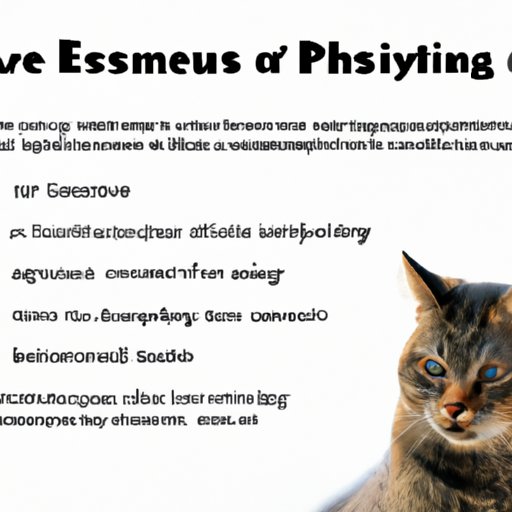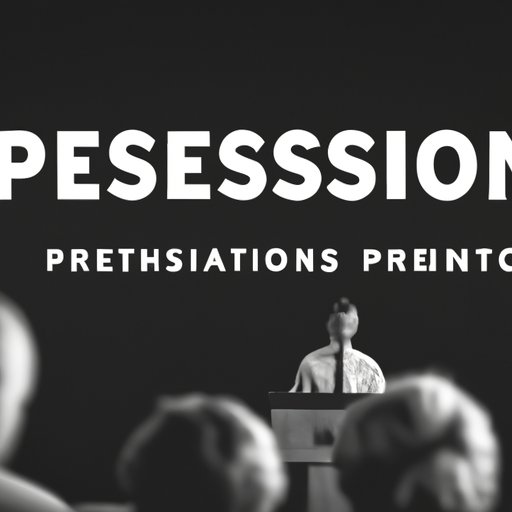Introduction
Persuasive writing is a form of communication that involves expressing an opinion, making a case for a certain viewpoint, and trying to influence an audience. It differs from other forms of written communication, such as informative writing, because it is more focused on convincing readers to accept the writer’s point of view. In this article, we will explore why persuasive writing is important and its various applications.

Exploring the Benefits of Persuasive Writing in Business Communications
Persuasive writing can be used in business communications to help enhance credibility, improve decision-making, and encourage collaboration. Here are some of the ways persuasive writing can be used in business.
Enhancing Credibility
Persuasive writing can help establish credibility by providing evidence to support claims. This evidence could include research studies, expert opinions, or facts and figures. By providing this evidence, it allows the writer to make a more convincing argument and increases the likelihood that their message will be taken seriously.
Improving Decision-Making
Persuasive writing can also help improve decision-making by presenting a clear and convincing argument. By clearly laying out the facts and making a convincing case for a particular course of action, it makes it easier for decision-makers to weigh the pros and cons and come to a conclusion. This can help save time and reduce confusion in the workplace.
Encouraging Collaboration
Finally, persuasive writing can be used to encourage collaboration between different departments and teams. By presenting a strong argument that outlines the benefits of working together, it can help foster an environment of cooperation and collaboration.
Utilizing Persuasive Writing to Promote Social Change
In addition to its use in business, persuasive writing can also be used to promote social change. Here are some of the ways persuasive writing can be used to address issues of inequality and advocate for positive change.
Addressing Issues of Inequality
Persuasive writing can be used to address issues of inequality by making a case for why change is necessary. By providing evidence and outlining the potential benefits of change, it can help convince people that change is necessary and can help bring about positive outcomes.
Providing an Outlet for Advocacy
Persuasive writing can also be used as an outlet for advocacy. By making a compelling argument and connecting with potential allies, it can help mobilize people to take action and work towards a common goal.
Connecting With Potential Allies
Finally, persuasive writing can be used to connect with potential allies and build relationships. By presenting a convincing argument and demonstrating why it’s important to work together, it can help foster a sense of unity and solidarity.
Understanding How Persuasive Writing Can Help Influence Decision-Making
Persuasive writing can also be used to influence decision-making. Here are some of the ways persuasive writing can be used to effectively make an argument.
Establishing a Persuasive Argument
The first step in persuasive writing is to establish a persuasive argument. This involves presenting the facts, outlining why a particular course of action should be taken, and making a case for why it is the best option.
Using Evidence to Support Claims
Another important aspect of persuasive writing is to provide evidence to support claims. This can include research studies, expert opinions, or facts and figures. By providing evidence, it makes it easier for the reader to trust the argument and be convinced of its validity.
Appealing to Emotions
Finally, persuasive writing can be used to appeal to emotions. By connecting with the reader on an emotional level, it can make it easier for them to understand and accept the argument. This can be done through storytelling, using metaphors and analogies, or highlighting the consequences of inaction.

The Power of Persuasion: Why It Matters for Public Speaking
Persuasive writing can also be used in public speaking. Here are some of the ways persuasive writing can be used to craft an effective speech.
Crafting a Persuasive Message
The first step in delivering a persuasive speech is to craft a persuasive message. This involves presenting the facts, outlining why a particular course of action should be taken, and making a case for why it is the best option. It is important to ensure that the message is clear, concise, and convincing.
Connecting With the Audience
It is also important to connect with the audience. This can be done by engaging with them, addressing their concerns, and making an emotional connection. By doing this, it helps increase the likelihood that the message will be heard and accepted.
Understanding How to Effectively Use Rhetorical Devices
Finally, it is important to understand how to effectively use rhetorical devices when delivering a persuasive speech. This includes using repetition, appealing to emotions, and utilizing figurative language to emphasize a point. By understanding how to effectively use these techniques, it can help make the message more powerful and effective.
Crafting Effective Arguments Through Persuasive Writing
Persuasive writing can also be used to craft effective arguments. Here are some of the steps involved in crafting a persuasive argument.
Identifying the Target Audience
The first step in crafting a persuasive argument is to identify the target audience. This involves understanding who the argument is aimed at and what their needs and concerns are. By understanding the target audience, it makes it easier to tailor the argument to their needs and make it more effective.
Crafting a Compelling Argument
Once the target audience has been identified, the next step is to craft a compelling argument. This involves outlining the facts, explaining why a particular course of action should be taken, and making a case for why it is the best option. It is important to ensure that the argument is clear, logical, and convincing.
Crafting Counterarguments
Finally, it is important to craft counterarguments. This involves anticipating potential objections and providing evidence to refute them. By doing this, it helps make the argument stronger and more convincing.

Demonstrating the Value of Persuasive Writing in Education
Persuasive writing can also be used in education to help students develop critical thinking skills, research skills, and prepare for college and career success. Here are some of the ways persuasive writing can be used in education.
Encouraging Critical Thinking
Persuasive writing can help encourage critical thinking by challenging students to think critically about a particular issue and form their own opinion. This can help them develop problem-solving skills and learn to think outside the box.
Developing Research Skills
Persuasive writing can also help develop research skills by teaching students how to find and evaluate evidence to support their argument. This can help them become better at researching topics, understanding complex concepts, and finding reliable sources of information.
Preparing Students for College and Career Success
Finally, persuasive writing can help prepare students for college and career success. By teaching them how to craft a persuasive argument, it can help them become better communicators and writers. This can help set them up for success in college and beyond.
Conclusion
In conclusion, persuasive writing is an important and powerful tool that can be used in many different contexts, from business and social change to public speaking and education. It can help enhance credibility, improve decision-making, encourage collaboration, and provide an outlet for advocacy. It can also help influence decision-making, craft effective arguments, and prepare students for college and career success. As this article has shown, persuasive writing is an invaluable skill that everyone should strive to master.
(Note: Is this article not meeting your expectations? Do you have knowledge or insights to share? Unlock new opportunities and expand your reach by joining our authors team. Click Registration to join us and share your expertise with our readers.)
